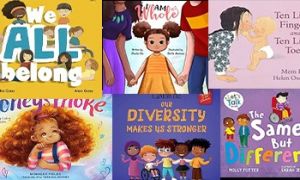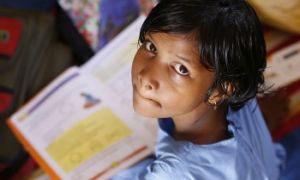“Agency” this word is very familiar to the parents and in early childhood care. Agency in childhood indicates the organisation is able to have decisions that will affect and influences the child and also the child has the right to take a decision and is also capable of initiating learning of their own choice and for the betterment of them. The following article provides information on the Question and Strategies To Show If Agency Is Promoted Within The Service and more.
In the definition, it has been said that “Agency: being able to make choices and decisions, to influence events and to have an impact on one’s world (DEEWR, 2009, p.45)”. Now, one can ask that this definition is focused on those who are independent in their movements and are sound in language-centric communication. So, the question may arise what about those who are not independent in movement? So, it can be said a large number of children remain unconsidered.
In EYLF definition says that agency will protect individual rights and independence, It has also been said by Helm, 2012 that “Though cross-cultural studies counter the belief that agency is a synonym for independence, and in fact affirm that it is our inter-dependence which strengthens agency”
Questions To Show If Agency Is Promoted Within The Setting
- Are all the children getting invitations for daily rituals and routines, or are they told/taken for participation as per the educator’s decision?
- Are educators giving attention and priorities to children’s non-verbal communication of their wishes, or do the educators taking the decision about what’s best for them?
- Are the children allowed to eat when they want, or does the educator decide when everyone eats together?
- In the nappy changing time, notice if the children give them relaxation and comfort and also make a connection with them or they treat it as just a responsibility without any affection to complete it
- If the children have the opportunity to decide when they play or the teacher only decides their playtime on behalf of the children.
- If the children get a chance to visualise the different things in their learning episodes or that has to depend on the educator’s verbal description
- If the children are being attained hurriedly and remain task-focused or they are allowed to play as per their choice able duration with a slow-paced attitude of educators and always keen to answer their questions.
So, Educators have to understand that the role of an agency is not only to keep the children physically safe but also to give opportunities for their social, and emotional, development.
Agency is also responsible to make problem-solving attitudes and decision-making attitudes toward children. In short, they are responsible for children’s overall mental physical social, and emotional development.
Further Reading
EYLF Learning Outcome 1: Children Have A Strong Sense Of Identity - The following lists the sub outcomes, examples of evidence when children can achieve each sub outcome and how educators can promote and help children to achieve EYLF Learning Outcome 1: Children Have A Strong Sense Of Identity.
How Educators Can Promote EYLF Learning Outcomes - To support children achieve learning outcomes from the EYLF Framework, the following list gives educators examples of how to help children with their goals. It also encourages and promotes each individual outcome throughout the early childhood setting.
ECA - Code Of Ethics - The ECA - Code Of Ethics is designed especially for early childhood services and is based on the principles of the United Nations Convention on the Rights of the Child (1991).
Reference:
Agency Is So Much More Than Choice and Voice, ACECQA







 As an Educator in Australia, your pay rate falls under the Children’s Services Award 2010. This award states the minimum amount that an employer can
As an Educator in Australia, your pay rate falls under the Children’s Services Award 2010. This award states the minimum amount that an employer can When working as a qualified Early Childhood Teacher (with a university degree) within a service, your rate of pay will come from the Educational Services
When working as a qualified Early Childhood Teacher (with a university degree) within a service, your rate of pay will come from the Educational Services When working as a Diploma Qualified Educator your pay rate is from the Children's Services Award 2010. This Award states your minimum rate of pay
When working as a Diploma Qualified Educator your pay rate is from the Children's Services Award 2010. This Award states your minimum rate of pay When working as a Cert 3 Qualified Educator, your pay rate is from the Children's Services Award 2010. This Award states your minimum rate of
When working as a Cert 3 Qualified Educator, your pay rate is from the Children's Services Award 2010. This Award states your minimum rate of Educational Leaders play a crucial role in their early childhood service by ensuring that the educational program aligns with best practices and supports the holistic
Educational Leaders play a crucial role in their early childhood service by ensuring that the educational program aligns with best practices and supports the holistic In early childhood education and care, ratios are more than a technicality—they are a frontline safeguard. Every child deserves responsive supervision, emotional connection, and developmental
In early childhood education and care, ratios are more than a technicality—they are a frontline safeguard. Every child deserves responsive supervision, emotional connection, and developmental With the new national child safety reforms kicking in on 1 September 2025, early childhood services like yours have a real opportunity to lead the
With the new national child safety reforms kicking in on 1 September 2025, early childhood services like yours have a real opportunity to lead the Here’s a comprehensive Mobile Phone and Smart Watch Policy tailored for early childhood education and care (ECEC) services in Australia, aligned with the latest 2025
Here’s a comprehensive Mobile Phone and Smart Watch Policy tailored for early childhood education and care (ECEC) services in Australia, aligned with the latest 2025 The Sea of Fish Challenge is a national initiative that invites children, educators, families, and communities to create and display fish artworks as a symbol
The Sea of Fish Challenge is a national initiative that invites children, educators, families, and communities to create and display fish artworks as a symbol Across the early childhood education and care sector, educators are sounding the alarm: current staffing ratios are insufficient to deliver safe, meaningful, and developmentally appropriate
Across the early childhood education and care sector, educators are sounding the alarm: current staffing ratios are insufficient to deliver safe, meaningful, and developmentally appropriate


